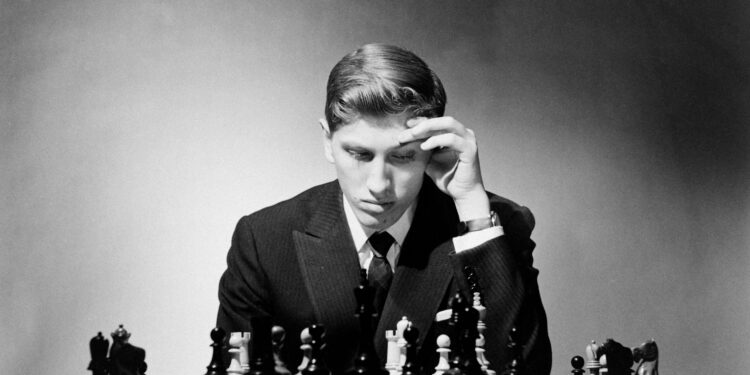Bobby Fischer, born on March 9, 1943, in Chicago, Illinois, is widely regarded as one of the greatest chess players in history. His unparalleled talent and enigmatic personality have left an indelible mark on the world of chess and beyond. In this article, we delve into the life of Bobby Fischer, exploring his early years, rise to stardom, and the complexities that defined his character.
Early Years:
Fischer’s journey into the world of chess began at an early age. He learned to play at six, and by the time he was thirteen, he became the youngest ever United States Chess Champion. His prodigious talent was evident in his intuitive understanding of the game and strategic brilliance, setting the stage for what would be a remarkable career.
Rise to Stardom:
Fischer’s breakthrough came in 1972 when he faced Soviet champion Boris Spassky in the World Chess Championship. The match, held in Reykjavik, Iceland, became one of the most iconic moments in chess history, capturing the world’s attention during the height of the Cold War. Fischer’s victory marked the first time an American had won the title, and he became a national hero.
His approach to the game was revolutionary. Fischer’s meticulous preparation, deep analysis, and innovative ideas about chess strategy influenced a new generation of players. He didn’t just play chess; he transformed it into an art form.
The Price of Genius:
Despite his remarkable achievements, Fischer’s personality was marked by contradictions and eccentricities. He was known for his intense focus on chess, often at the expense of personal relationships and mental well-being. His perfectionism and uncompromising nature led to clashes with chess authorities, resulting in controversies and withdrawals from competitive play.
In the aftermath of his triumph in 1972, Fischer’s life took a tumultuous turn. He withdrew from competitive chess, leading to a lengthy hiatus. His erratic behavior and controversial statements added to the mystique surrounding him. Fischer’s reclusiveness and idiosyncrasies became part of his legend, and the chess world eagerly awaited his return.
Legacy and Impact:
Bobby Fischer’s impact on chess extended beyond the board. His triumph over Spassky played a role in breaking down Cold War tensions, showcasing the power of human intellect to transcend political boundaries. Fischer’s influence on the popularity of chess in the United States and globally cannot be overstated.
However, his legacy is also tainted by his later years, marked by legal troubles and anti-Semitic remarks. Fischer’s complex character and struggles with mental health contribute to a nuanced understanding of his life and achievements.
Enduring Influence:
Despite the controversies, Fischer’s contributions to chess continue to shape the game. His games are studied and analyzed by aspiring players, and his ideas have become fundamental to modern chess theory. The Fischer Random Chess variant, which he invented to mitigate the impact of memorization in traditional chess, remains popular among enthusiasts.
In 2008, Bobby Fischer passed away at the age of 64. His life was a rollercoaster of triumphs and tribulations, and his legacy remains a subject of fascination and debate. Fischer’s brilliance on the chessboard and the complexities of his character ensure that he will be remembered as a unique and enduring figure in the annals of chess history.
In the world of chess, Bobby Fischer’s name echoes through time as a symbol of genius, controversy, and the enduring power of the human mind to shape the course of history.




Recent Comments